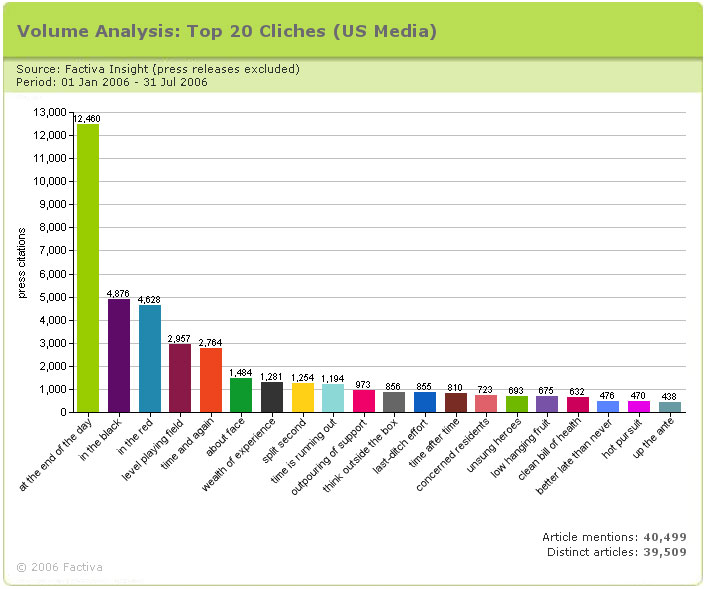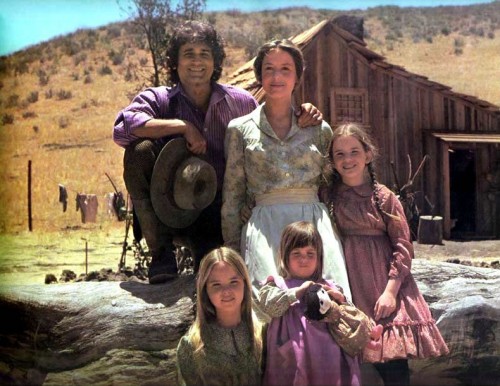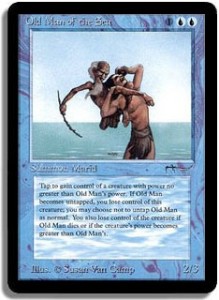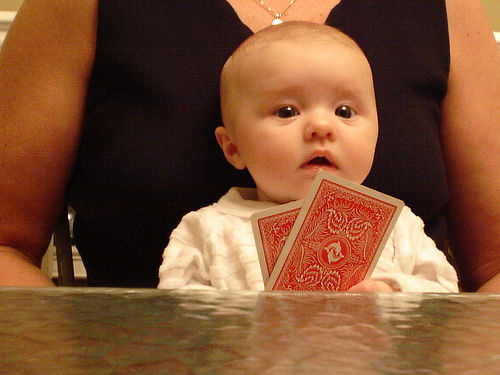Writerly Make Believe
A little while ago I was assigned the seemingly menial task of re-typing a chapter of Hans Fallada’s Wolf Among Wolves since, at the time, there was no digital copy in existence. What seems like it might have been a mind-numbing endeavor was actually one of my favorite chores while I was interning at Melville House. You can learn a tremendous amount about a writer by faking being them for a little while. You get to see the scaffolding of each sentence and you’re really forced to pay attention to every single syllable of every word. After I read something I really admire (or sometimes during) I often open up Word and start typing it in, word by word, sometimes spending hours on it. (And I wonder why I can’t find the time to post here.) I suppose it’s a dangerous habit to get into if you’re not the type to stop a project before it’s finished, but I still love wasting time this way.
Against Dualism: Yes That Is A Joke: A Response.

Against Good Stories: A Rebuttal

Earlier today Roxane posted about the merits of what she called “good stories.” She also invoked a discussion of the conventional/experimental split. I have just read her post and feel compelled to respond. (Thanks, Roxane, for providing such a provocative post!)
Let me admit right up front that this post is going to be impromptu, and therefore the organization of my thoughts will presumably be scattershot, and in no way comprehensive. I am not going to edit this post; I’m just going to type off the cuff and then post the post. I have to do it this way or else I’ll do like I always do, which is to say that I’ll tell myself I’m going to write a post responding to Roxane’s post, but then I won’t ever get around to doing it.
So here goes my thoughts as they occur to me…
Your Own. Personal. Cliché.
[Elisa Gabbert is back, to holler about review language, usage, and etc! — BB]

On the Guardian’s Books Blog, Peter Robins asks commenters to confess their “personal clichés“: “Everyone has words and phrases they just can’t stop using … Not all clichés are universal.” One “TobyL” says he overuses “quietly tumultuous.” I’m simultaneously grossed out and impressed by anyone who’d admit that.
The personal cliché is evidently closely related to the concept of moves but I emphatically do not think moves are equivalent to clichés. A move may be used only once or be endlessly variable without becoming tired. Clichés, obvs, are used over and over until they lose all interest and power. A move can become a cliché or a tic, which is why it’s good to be aware of your own moves, lest they become your personal clichés. (Just as talking about moves and clichés has become my personal blogging cliché.) (Also please note that the title of this post is a total cliché in posts referring to the Guardian piece; it also appears in the original piece itself. Clichépalooza.)
Relatedly: I keep seeing links to this list of book review “clichés” but they’re mostly single words (“gripping,” “nuanced”). Aren’t these just overused words? I think I need more context to allow the use of cliché, e.g. calling a thriller “gripping” in a review is cliché. The word “gripping” is not a cliché in and of itself. (I am probably focusing too much on the etymology of the word, yes.)
I did a word cloud of my manuscript once and the most frequently used “word” was “blogpoem.” I don’t think that counts. On the other hand, there may be some words for which two usages is too many. The word “supersaturated” appears twice in The French Exit. Can I even use that once, really? I’ve got a handful of deaths. My go-to image for a while was clouds. Fucking loved clouds. But I’m not sure “cloud” is the kind of word you can overuse (I mean, within reason) and I’m not sure they’re a poetry cliché (yet) (as commenters on my last post said of the moon) and I’m not sure they’re even a personal cliché because I’ve been done with clouds for a while. Clouds, meet shitlist. And everybody’s got a body part they overuse and abuse, right? I just control-F’ed a whole lot of eyes.
What are your personal clichés and overused words? Think you don’t have any? Go read your book again and find out.
A Rambling On and An Appreciation of Good Stories

I have been thinking lately about traditional storytelling, experimental writing, narrative and anti-narratives. In a few threads here and on other sites, I’ve seen discussions alluding to narrative fatigue—a weariness for stories containing traditional elements like plot, exposition, linearity, etc. Experimentation is a vital thing so this is not a condemnation of experimentation but rather, a bit of appreciation for the traditional story.
My favorite story (though I enjoy all kinds of writing) is told simply and without artifice, one where I turn the page and can’t wait to see what happens next, where the characters are interesting and well-developed and where I am invested emotionally. I love reading something so great that I want to find everything that person has ever written immediately.
I was reminded of my love for a good story when I read Scott McClanahan’s Stories II, a collection of short stories completely stripped of any bullshit. From front to back, the author’s voice was clear, charming and genuine and it was one of the most refreshing, satisfying books I’ve read in recent memory. As I put the book down I thought, “That’s how it’s done.”
James Franco edited by the Tyrant

[The Tyrant Giancarlo Ditrapano sent us this and we couldn’t help ourselves. With all due respect to the Esquire fiction camp and the creator. Read both, see what you think? – BB]
I just read the James Franco story in Esquire and thought it was great. There were just a couple of things that needed tweaking in my opinion so I started messing with it. You’ve written a good, funny story, Mr. Franco. But now it’s even better. Remember, it never matters who writes it, it only matters that it gets written. Or something like that. Some good stuff in here though. I’d love to work on something with you for my meager little journal. Email me at ditrapano@nytyrant.com. Let’s talk it out.
N.B. This was done with entirely good intention and I meant no harm, as I never have meant harm. Just having some fun and don’t want anyone to get in trouble or angry over this. Who knows? I may have ruined the thing.
yours truly,
Gian

Teabaggers teach me something about writing: magical thinking
“There are millions of people across the country who wish you ill, and all of those thoughts that are projected on you will materialize into something that’s not very good for you. We don’t have to do anything but sit back and wish.”
There are times when I have a character in a story who I wish and wish and wish ill upon. Unless the crazy, teabagging magical thinker transcribed from the news report above, though, when I’m writing my wishes can come true. I’m an author. I am in control. I am God/a god/etc. here.
Sometimes, though, it might be helpful to ignore that wish. Maybe most of the time. Maybe most of the time, it would be detrimental to the story, to the story’s world, to be the vengeful et cetera.
I mean, nothing will happen to Stupak because millions of people across the country wish him ill. Not from the wishing. Why should I always get what I want just because I’m in control?
Talk Talk
 Last night, I did a reading at Pilot Books. At Pilot’s request, I did an informal craft talk after the reaing. I chose to talk a little about how to approach writing dialogue. What follows are my introductory remarks.
Last night, I did a reading at Pilot Books. At Pilot’s request, I did an informal craft talk after the reaing. I chose to talk a little about how to approach writing dialogue. What follows are my introductory remarks.
Let’s talk about characters when they talk. Stories—mostly—have these things called characters, and more often than not, those characters come in sets, in twos, in threes, in groups and parties and piles. And so then there we are—we writerly types—with our groups and parties and piles and sets of characters, and we have these characters in these rooms we’ve made, these rooms we’ve furnished with all sorts of nice little objects for our characters to look at and consider and think about the history of and maybe to throw at one another—and what then? Why the throwing? What then for the characters there together?
Well, God. Sometimes these characters will have to go ahead and talk to one another. How? How should we—we writerly types—approach the characters talking to each other dilemma? How the heck do we write dialogue? READ MORE >
SarcMark, it’s awesome

Sarcasm, Inc. has patented a “SarcMark,” a punctuation mark which looks like a recoiled question mark, to signify sarcasm. Of their 3rd “Core Belief,” they proclaim “For centuries, questions and exclamations have had their own punctuation marks. It’s time that sarcasm is treated equally!” Wow, that’s pretty cool how they used that antiquated exclamation mark![]() . Yah, these guys are not only cutting-edge grammarians, but great entrepreneurs
. Yah, these guys are not only cutting-edge grammarians, but great entrepreneurs![]() .
.
Isn’t it funny how this sentence raises a question without a question mark. Or how “the decapitated man still flinched” is arguably more effective than “the decapitated man still flinched!” Intent, when implicit, is a sharper, smoother cut. The author’s story lies not on the page, but in the reader’s mind.
Christ, I just wish I could download the SarcMark, because without it, without that fucking awesome SarcMark I cannot be sarcastic! I can only be excited — with or without any marks signifying those feelings — so, so excited.
Poker as Storytelling: Affect, Trickery, Common Sound

Many poker players will tell you that every hand is a story. In hold em, the four rounds of betting, the exposed community cards (given to the table in a set of three, then one more, then one more), and your two hole cards, are simply a skeletonic structure around which your action (the bet, the posture, the air around the table, speech, eyes) often are the body of what occurs. Many hands of poker fail to develop into powerful hands (i.e. both players have something but often not the nuts), thus the money frequently tends toward the player that can best present himself in a light that makes him seem provocative, working, putting fear in the other player. It becomes a question of who can tell the most believable story: if I believe that you have me crushed, and I acquiesce, it does not matter what you actually have.
The best poker players in the world, then, aren’t those who catch the most cards (as over time fate levels all), but those who are the most effective in masking their weakness, and exposing the weakness of the other. One of the biggest mistakes a neophyte makes when bluffing is failing to make their bluff make sense: they simply push hard, thinking that it is sheer aggression, and not calculated stories, images, that win pots. A common basic tactic of bluffing against a hand that had been strong early in the story is to bet “scare cards,” such as cards that complete a flush or straight draw, or betting an ace on the river when the high card had been a queen before. Betting as if the scare card completed your drawing hand, whether it does or not, can be enough to make weaker player fold. When scare cards don’t come, late bluffing is more easily picked off, as it is harder to give a player credit for a hand.
At higher levels, though, players are more aware of the tactics of storytelling. They are also aware that you are aware of them being aware, so the levels of who is representing what when and what do they think you think are constantly in flux, making high level poker play sometimes as exciting on a visceral level as writing that takes risks (both making it, and consuming it). There is a mash up of gut instinct, rational odds, emotional texture, board texture, physical surroundings (what do the opponent’s shoulders tell you about his or her hand? what do his or her eyes? how the chips are moved? the breathing. etc., not to mention the retro-image of what each player did three hours ago, three months ago, three years, up to right now), together create a continuity of immediate and retroactive value which in sum creates an environment to be processed, reacted to, explored, and yet is as cut and dry on the base level as a sentence printed on a page. Great players can seem as if they know exactly what you are holding in the midst of a hand. The greatest players go even beyond that, as if they not only see your hand, but now will draw you down another leg of the story, cause affect to you, do you some kind of rupture. Certain kinds of play, beyond money, can affect your spirit, your persona. A great session of poker, like an exceptionally great text, can make or break your month or year.

